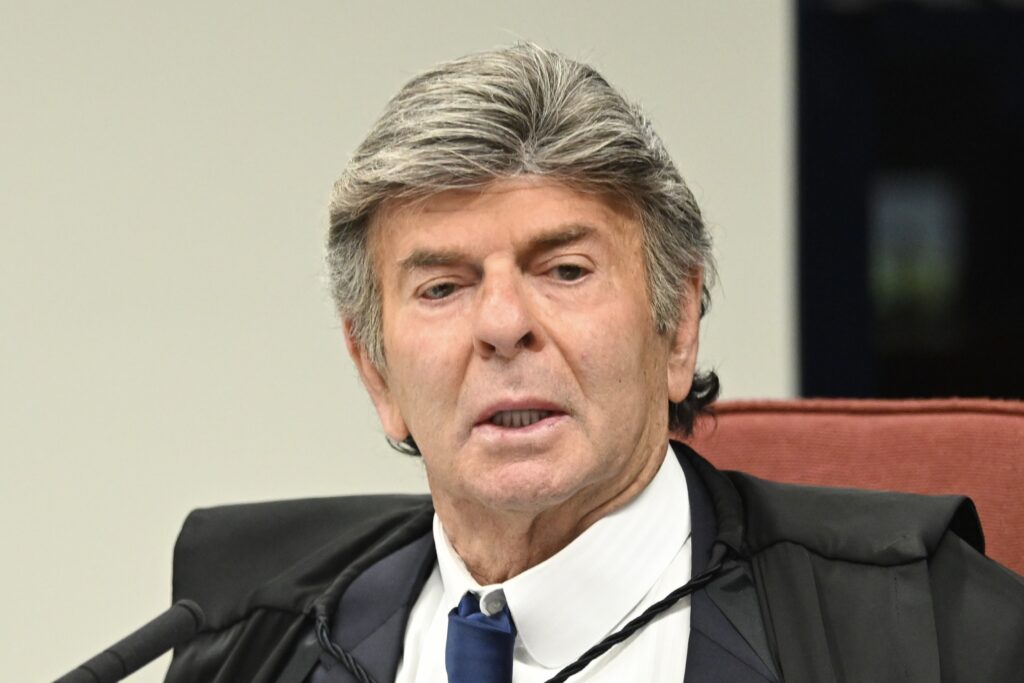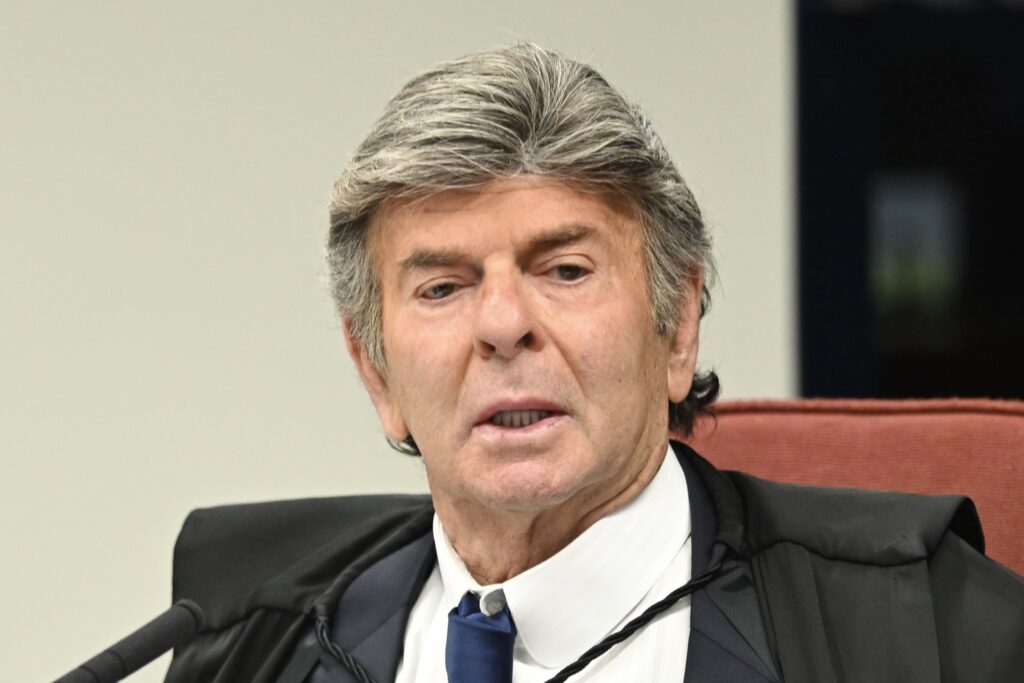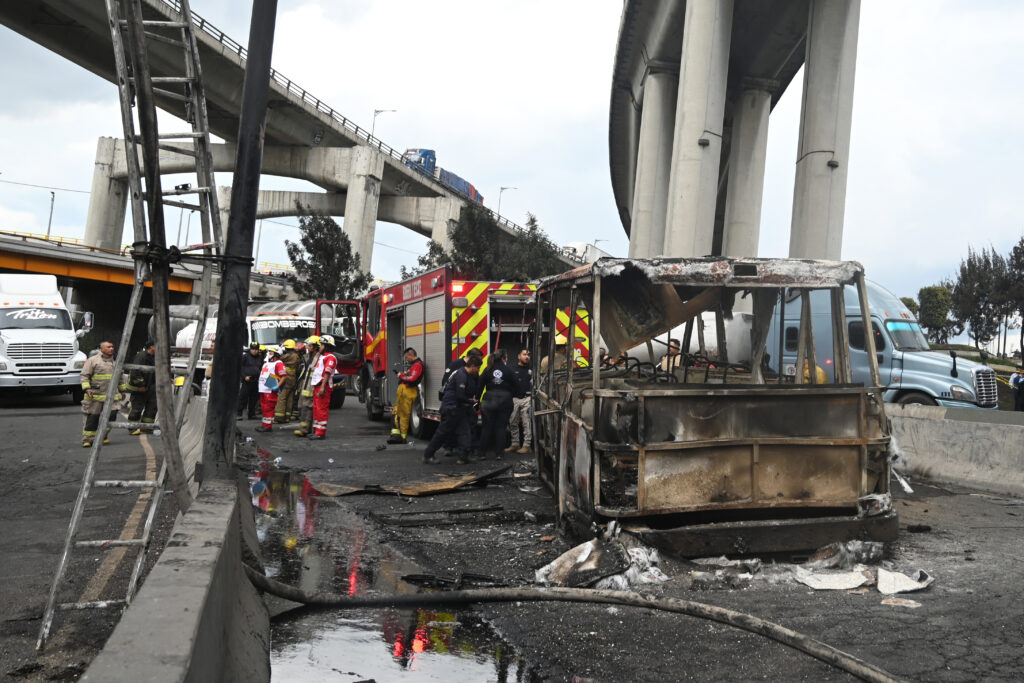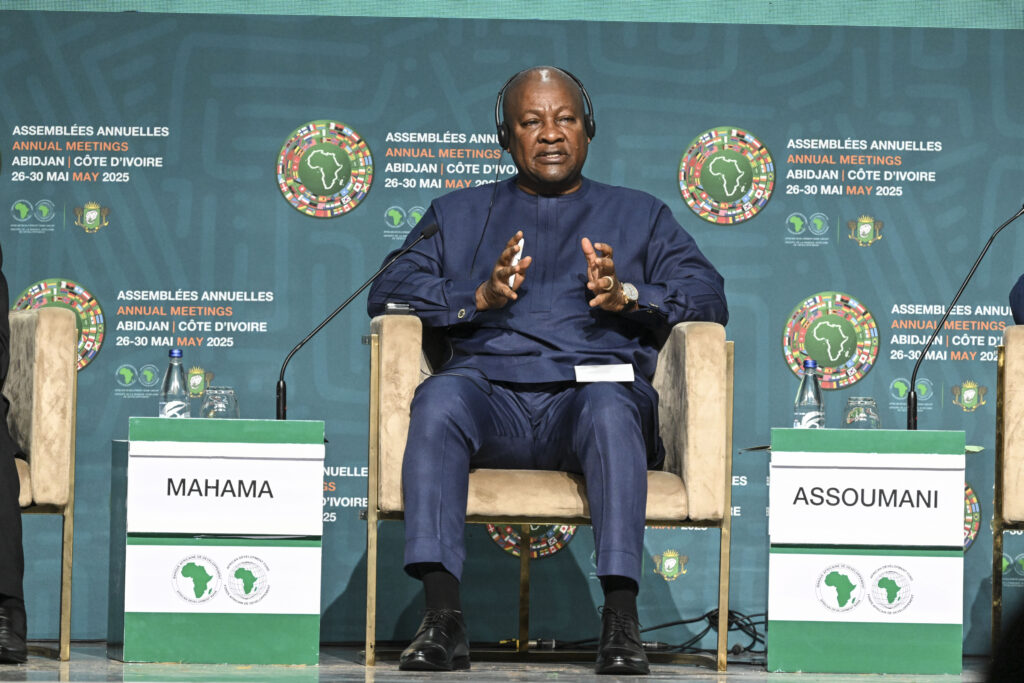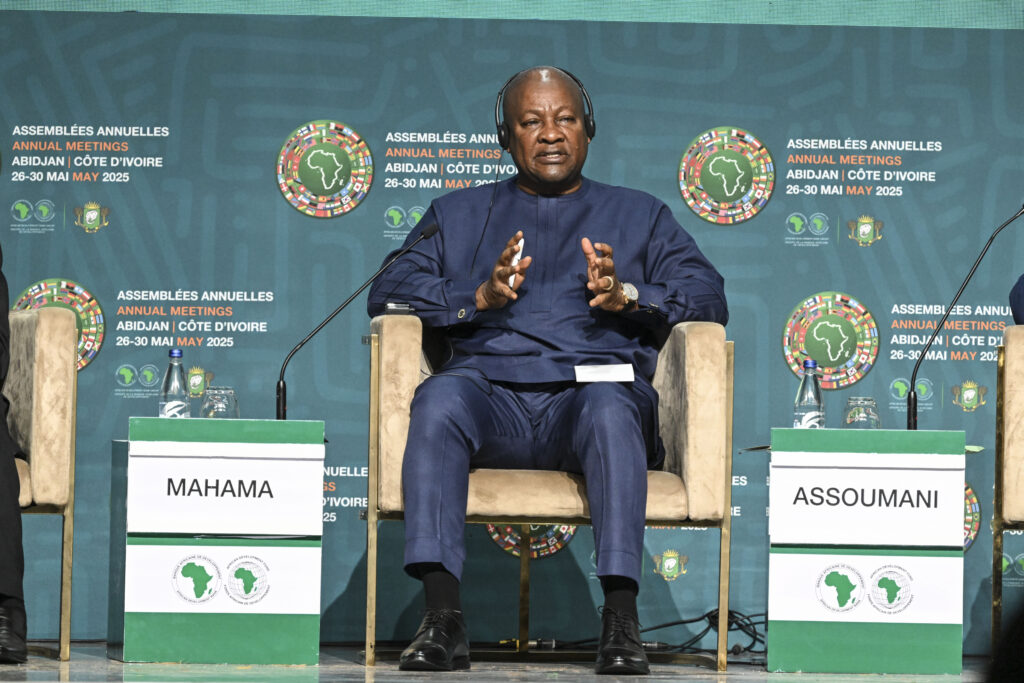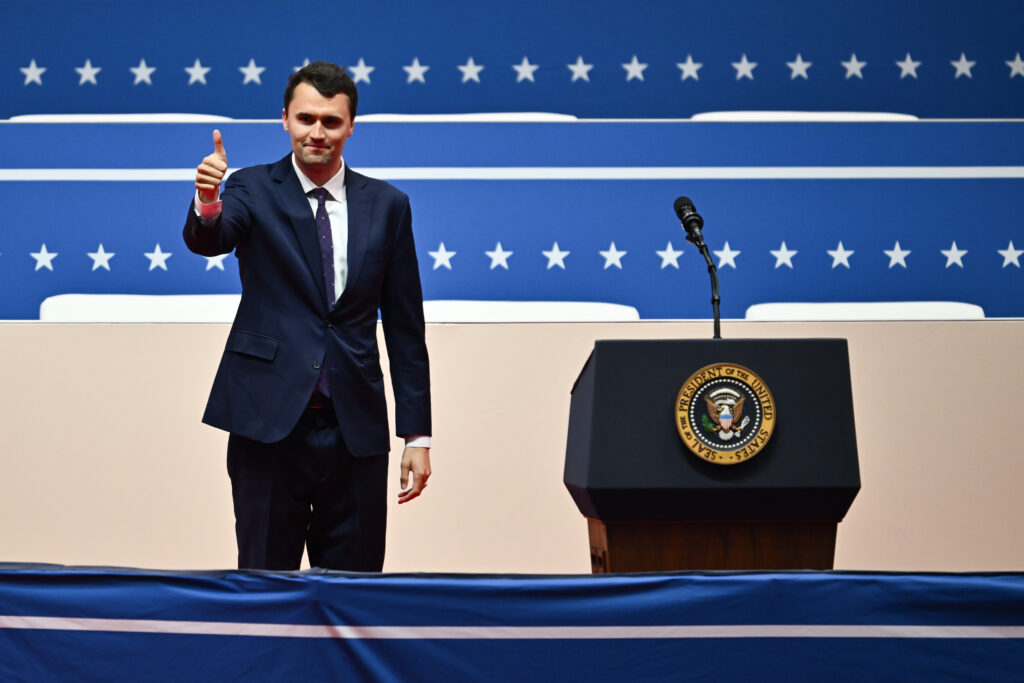Procès Bolsonaro: un juge démonte le dossier et vote pour l’acquittement
Un juge de la Cour suprême du Brésil a voté mercredi pour l’acquittement de Jair Bolsonaro et critiqué sévèrement le procès historique de l’ex-président pour tentative présumée de coup d’Etat, appelant à ne pas rendre un “jugement politique”.Avec un score de 2 à 1 en faveur d’une condamnation, le couperet menace toutefois de près l’ancien chef d’Etat d’extrême droite (2019-2022), une voix supplémentaire suffisant à sceller son sort. Les deux derniers juges voteront d’ici vendredi.Accusé d’avoir été le chef d’une “organisation criminelle” ayant œuvré pour son “maintien autoritaire au pouvoir” malgré sa défaite face au président actuel de gauche Luiz Inacio Lula da Silva lors de l’élection de 2022, Jair Bolsonaro, 70 ans, risque jusqu’à 43 ans de prison.Le juge Luiz Fux s’est prononcé mercredi pour un acquittement à l’issue d’une démonstration longue – plus de dix heures – et technique.”Il n’appartient pas à la Cour suprême de faire un jugement politique sur ce qui est bon ou mauvais”, a-t-il lancé en préambule.Estimant que le procès devrait être annulé, il a réfuté l’existence d’une “organisation criminelle armée”, faute d’armes utilisées, et a rejeté les accusations portées contre M. Bolsonaro, faute de “preuves suffisantes”.Selon lui, le supposé complot n’a jamais dépassé la “phase préparatoire”.Il a aussi affirmé que la haute juridiction n’avait aucune compétence pour juger M. Bolsonaro et ses sept co-accusés, dont d’anciens ministres et des militaires haut gradés. Ayant quitté leurs fonctions, ils devraient selon lui être jugés dans des instances inférieures.- “Persécution” -Inéligible jusqu’en 2030 et assigné à résidence depuis début août, M. Bolsonaro est absent des audiences, pour raisons de santé selon ses avocats. Il a obtenu mercredi un feu vert pour quitter brièvement son domicile dimanche afin de subir une intervention médicale.Si le camp conservateur tient depuis des semaines pour acquise une condamnation de son champion, il a pavoisé en suivant le vote du juge Fux, retransmis en direct à la télévision, comme pour ses collègues. Fils de l’ancien président, Flavio Bolsonaro a appelé à une “annulation totale de la procédure”, estimant sur le réseau social X que le magistrat avait démontré une “persécution politique”.Celso Vilardi, avocat du principal accusé, a déclaré à la presse que l’argumentation du juge “peut être utile à l’avenir”, pour des recours contre une possible condamnation.Pour que M. Bolsonaro soit condamné ou acquitté, une majorité simple de trois juges sur cinq est nécessaire, mais le verdict et une éventuelle peine ne seront formellement prononcés qu’une fois que tous les juges auront voté.- “Menaces” -Le procès divise fortement ce pays ultra-polarisé, une partie de l’opinion saluant une application de la loi quand une autre y voit des motivations politiques.Second à voter mardi pour une condamnation de l’ancien chef de l’Etat, Flavio Dino a dit avoir reçu de “graves menaces” sur les réseaux sociaux, dans la foulée de son vote. Dans un courrier, ce magistrat, ancien ministre de la Justice de Lula, a demandé mercredi à la police d’ouvrir une enquête. “Il y a des milliers de posts sur les réseaux sociaux, appelant à des attaques mortelles contre les juges et leurs familles”, ont fait savoir ses services.La principale cible du discours du juge Fux a sans conteste été Alexandre de Moraes, rapporteur du procès, même si l’orateur du jour a pris soin de préciser qu’ils étaient “amis”.Honni des bolsonaristes, ce puissant juge est au cœur de la crise actuelle entre Etats-Unis et Brésil.Le président américain Donald Trump a invoqué une “chasse aux sorcières” contre son allié d’extrême droite Jair Bolsonaro pour justifier une surtaxe punitive de 50% sur une partie des exportations brésiliennes.Son administration a en outre pris des sanctions individuelles contre le juge Moraes et plusieurs magistrats de la Cour suprême.
Procès Bolsonaro: un juge démonte le dossier et vote pour l’acquittement
Un juge de la Cour suprême du Brésil a voté mercredi pour l’acquittement de Jair Bolsonaro et critiqué sévèrement le procès historique de l’ex-président pour tentative présumée de coup d’Etat, appelant à ne pas rendre un “jugement politique”.Avec un score de 2 à 1 en faveur d’une condamnation, le couperet menace toutefois de près l’ancien chef d’Etat d’extrême droite (2019-2022), une voix supplémentaire suffisant à sceller son sort. Les deux derniers juges voteront d’ici vendredi.Accusé d’avoir été le chef d’une “organisation criminelle” ayant œuvré pour son “maintien autoritaire au pouvoir” malgré sa défaite face au président actuel de gauche Luiz Inacio Lula da Silva lors de l’élection de 2022, Jair Bolsonaro, 70 ans, risque jusqu’à 43 ans de prison.Le juge Luiz Fux s’est prononcé mercredi pour un acquittement à l’issue d’une démonstration longue – plus de dix heures – et technique.”Il n’appartient pas à la Cour suprême de faire un jugement politique sur ce qui est bon ou mauvais”, a-t-il lancé en préambule.Estimant que le procès devrait être annulé, il a réfuté l’existence d’une “organisation criminelle armée”, faute d’armes utilisées, et a rejeté les accusations portées contre M. Bolsonaro, faute de “preuves suffisantes”.Selon lui, le supposé complot n’a jamais dépassé la “phase préparatoire”.Il a aussi affirmé que la haute juridiction n’avait aucune compétence pour juger M. Bolsonaro et ses sept co-accusés, dont d’anciens ministres et des militaires haut gradés. Ayant quitté leurs fonctions, ils devraient selon lui être jugés dans des instances inférieures.- “Persécution” -Inéligible jusqu’en 2030 et assigné à résidence depuis début août, M. Bolsonaro est absent des audiences, pour raisons de santé selon ses avocats. Il a obtenu mercredi un feu vert pour quitter brièvement son domicile dimanche afin de subir une intervention médicale.Si le camp conservateur tient depuis des semaines pour acquise une condamnation de son champion, il a pavoisé en suivant le vote du juge Fux, retransmis en direct à la télévision, comme pour ses collègues. Fils de l’ancien président, Flavio Bolsonaro a appelé à une “annulation totale de la procédure”, estimant sur le réseau social X que le magistrat avait démontré une “persécution politique”.Celso Vilardi, avocat du principal accusé, a déclaré à la presse que l’argumentation du juge “peut être utile à l’avenir”, pour des recours contre une possible condamnation.Pour que M. Bolsonaro soit condamné ou acquitté, une majorité simple de trois juges sur cinq est nécessaire, mais le verdict et une éventuelle peine ne seront formellement prononcés qu’une fois que tous les juges auront voté.- “Menaces” -Le procès divise fortement ce pays ultra-polarisé, une partie de l’opinion saluant une application de la loi quand une autre y voit des motivations politiques.Second à voter mardi pour une condamnation de l’ancien chef de l’Etat, Flavio Dino a dit avoir reçu de “graves menaces” sur les réseaux sociaux, dans la foulée de son vote. Dans un courrier, ce magistrat, ancien ministre de la Justice de Lula, a demandé mercredi à la police d’ouvrir une enquête. “Il y a des milliers de posts sur les réseaux sociaux, appelant à des attaques mortelles contre les juges et leurs familles”, ont fait savoir ses services.La principale cible du discours du juge Fux a sans conteste été Alexandre de Moraes, rapporteur du procès, même si l’orateur du jour a pris soin de préciser qu’ils étaient “amis”.Honni des bolsonaristes, ce puissant juge est au cœur de la crise actuelle entre Etats-Unis et Brésil.Le président américain Donald Trump a invoqué une “chasse aux sorcières” contre son allié d’extrême droite Jair Bolsonaro pour justifier une surtaxe punitive de 50% sur une partie des exportations brésiliennes.Son administration a en outre pris des sanctions individuelles contre le juge Moraes et plusieurs magistrats de la Cour suprême.
L’explosion d’un camion-citerne à Mexico fait 57 blessés, dont 19 graves
L’explosion mercredi d’un camion transportant du gaz dans l’est de Mexico a fait 57 blessés, dont 19 blessés graves, ont annoncé les autorités locales.Dans un premier bilan, elles avaient fait état d’au moins 18 blessés graves et de nombreux dégâts matériels.Le véhicule a explosé alors qu’il circulait sur un pont d’Iztapalapa, un district très peuplé de la mégalopole, provoquant des brûlures au deuxième et troisième degrés chez 19 personnes, a indiqué la mairie.”Aucun décès n’a été signalé jusqu’à présent”, a précisé Myriam Urzua, secrétaire à la gestion des risques et à la protection civile locale. Les blessés ont été pris en charge dans les hôpitaux publics les plus proches. Des images diffusées par la télévision et sur les réseaux sociaux montrent le moment de l’explosion. Puissante, elle a produit d’énormes flammes visibles de loin. Sur ces images, on peut voir une femme tenant un bébé dans les bras, des blessures apparentes aux bras et au visage. On aperçoit également deux hommes aux vêtements en partie brûlés, la peau également atteinte. Une autre vidéo montre des dizaines de personnes fuyant le lieu de l’accident, l’air terrifiées, les flammes en toile de fond. “Nous savons grâce à des images de caméras de vidéosurveillance que des personnes étaient en feu en quittant leur véhicule”, a déclaré à la presse Pablo Vazquez, secrétaire à la sécurité de la capitale. Environ 18 véhicules ont également été endommagés par l’explosion, dont l’origine fait l’objet d’une enquête du parquet. Le camion-citerne, qui transportait près de 50.000 litres de gaz s’est apparemment “renversé”, a indiqué la maire de Mexico, Clara Brugada.Le véhicule s’est retrouvé renversé sur la chaussée et les pompiers ont réussi à maîtriser les flammes, selon des images provenant du site.Sur place, on pouvait également observer plusieurs voitures brûlées, dont un camion de transport, tandis que d’autres véhicules se retrouvaient sans pneus et avec les vitres brisées. La fumée a atteint une station de trolleybus, l’un des principaux moyens de transport de cette ville de 9,2 millions d’habitants. Quelque 1,8 million de personnes vivent à Iztapalapa, l’une des zones les plus peuplées du pays. L’explosion de mercredi a ravivé le souvenir d’accidents impliquant des véhicules de transport de combustibles et des infrastructures d’hydrocarbures. Comme quand, en janvier 2019, l’incendie puis l’explosion d’un pipeline avait fait 137 morts à Tlahuelilpan, dans l’État central d’Hidalgo.
Le Qatar veut que Netanyahu soit “traduit en justice” et reconsidère sa médiation
Le Premier ministre du Qatar, Mohammed ben Abdelrahmane Al-Thani, a affirmé mercredi que son homologue israélien, Benjamin Netanyahu, devait être traduit en justice après l’attaque israélienne contre des chefs du Hamas à Doha mardi, estimant que celle-ci avait “tué tout espoir” de libérer les otages à Gaza.M. Al-Thani a également indiqué que le Qatar “réévalue tout” concernant son rôle de médiateur dans les pourparlers – jusqu’à présent infructueux – en vue d’un cessez-le-feu dans le conflit provoqué par l’attaque du Hamas le 7-Octobre.”J’ai réfléchi à l’ensemble du processus ces dernières semaines, et je me suis dit que Netanyahu ne fait que nous faire perdre notre temps”, a-t-il déclaré selon le blog en direct de CNN, après une interview avec la chaîne américaine.L’armée de l’air israélienne a visé mardi des dirigeants du Hamas réunis dans un complexe à Doha, la capitale de ce pays pays allié des Etats-Unis et abritant régulièrement des pourparlers.”Je pense que ce qu’a fait Netanyahu hier (mardi, ndlr), c’est d’avoir tué tout espoir pour les otages”, a indiqué M. Al-Thani dans une déclaration à CNN, jugeant qu'”il doit être traduit en justice”.Cette attaque sans précédent a aussi suscité une rare réprimande du président américain Donald Trump, grand allié d’Israël, qui a dit en être “très mécontent”. M. Netanyahu avait a mis en garde les autorités qataries: “je dis au Qatar et à toutes les nations qui hébergent des terroristes: vous devez soit les expulser, soit les traduire en justice. Parce que si vous ne le faites pas, nous le ferons”.Le Hamas, en guerre contre Israël dans la bande de Gaza, a affirmé que ses hauts responsables visés avaient survécu mais que les raids israéliens avaient fait six morts.Israël, qui a juré de détruire le mouvement islamiste et de le chasser du territoire palestinien d’où il a lancé son attaque sans précédent le 7 octobre 2023, a décimé sa direction depuis le début de la guerre.- “Bras long” -En riposte à l’attaque du 7-Octobre, l’armée israélienne a lancé une offensive dévastatrice dans la bande de Gaza, faisant des dizaines de milliers de morts et provoquant une catastrophe humanitaire.Mercredi, le ministre israélien de la Défense Israël Katz a prévenu que son pays frapperait ses ennemis partout. “La politique sécuritaire d’Israël est claire: son bras long agira contre ses ennemis, où qu’ils soient. Ils n’ont nulle part où se cacher.””Si les meurtriers et les violeurs du Hamas n’acceptent pas les conditions posées par Israël pour mettre fin à la guerre, en premier lieu la libération de tous les otages, et leur désarmement, ils seront détruits et Gaza sera détruite”, a-t-il ajouté.Selon des sources du Hamas, six dirigeants dont Khalil al-Hayya, Khaled Mechaal, ancien numéro un, et Zaher Jabarine, responsable du mouvement en Cisjordanie, étaient dans le bâtiment au moment de l’attaque. L’AFP n’est parvenu à joindre aucun d’eux depuis.Toujours selon le Hamas, les six morts sont le fils du négociateur en chef Khalil al-Hayya, le chef du bureau de M. Hayya, trois gardes du corps et un policier qatari.Le représentant d’Israël à l’ONU, Danny Danon, a déclaré qu’il était “trop tôt pour se prononcer sur le résultat” de la frappe.- 48 morts à Gaza selon les secours -En dépit des pressions internationales pour un arrêt de la guerre dans la bande de Gaza, l’armée israélienne y a poursuivi son offensive faisant au moins 48 morts selon la Défense civile locale.L’armée a affirmé qu’elle intensifierait “dans les prochains jours ses frappes à Gaza-ville”, considérée comme l’un des derniers bastions du Hamas dans le territoire, “dans le but de démanteler l’infrastructure terroriste du Hamas, d’entraver sa capacité opérationnelle et de réduire la menace qui pèse sur les troupes”.L’attaque du 7-Octobre a entraîné la mort de 1.219 personnes côté israélien, en majorité des civils, selon un décompte de l’AFP basé sur des données officielles.Sur les 251 personnes enlevées ce jour-là, 47 sont encore retenues à Gaza dont 25 décédées selon l’armée.L’offensive de représailles israélienne a fait au moins 64.656 morts à Gaza, selon le ministère de la Santé du Hamas à Gaza, dont les chiffres sont jugés fiables par l’ONU. L’ONU a déclaré la famine à Gaza, ce que Israël dément.
Le Qatar veut que Netanyahu soit “traduit en justice” et reconsidère sa médiation
Le Premier ministre du Qatar, Mohammed ben Abdelrahmane Al-Thani, a affirmé mercredi que son homologue israélien, Benjamin Netanyahu, devait être traduit en justice après l’attaque israélienne contre des chefs du Hamas à Doha mardi, estimant que celle-ci avait “tué tout espoir” de libérer les otages à Gaza.M. Al-Thani a également indiqué que le Qatar “réévalue tout” concernant son rôle de médiateur dans les pourparlers – jusqu’à présent infructueux – en vue d’un cessez-le-feu dans le conflit provoqué par l’attaque du Hamas le 7-Octobre.”J’ai réfléchi à l’ensemble du processus ces dernières semaines, et je me suis dit que Netanyahu ne fait que nous faire perdre notre temps”, a-t-il déclaré selon le blog en direct de CNN, après une interview avec la chaîne américaine.L’armée de l’air israélienne a visé mardi des dirigeants du Hamas réunis dans un complexe à Doha, la capitale de ce pays pays allié des Etats-Unis et abritant régulièrement des pourparlers.”Je pense que ce qu’a fait Netanyahu hier (mardi, ndlr), c’est d’avoir tué tout espoir pour les otages”, a indiqué M. Al-Thani dans une déclaration à CNN, jugeant qu'”il doit être traduit en justice”.Cette attaque sans précédent a aussi suscité une rare réprimande du président américain Donald Trump, grand allié d’Israël, qui a dit en être “très mécontent”. M. Netanyahu avait a mis en garde les autorités qataries: “je dis au Qatar et à toutes les nations qui hébergent des terroristes: vous devez soit les expulser, soit les traduire en justice. Parce que si vous ne le faites pas, nous le ferons”.Le Hamas, en guerre contre Israël dans la bande de Gaza, a affirmé que ses hauts responsables visés avaient survécu mais que les raids israéliens avaient fait six morts.Israël, qui a juré de détruire le mouvement islamiste et de le chasser du territoire palestinien d’où il a lancé son attaque sans précédent le 7 octobre 2023, a décimé sa direction depuis le début de la guerre.- “Bras long” -En riposte à l’attaque du 7-Octobre, l’armée israélienne a lancé une offensive dévastatrice dans la bande de Gaza, faisant des dizaines de milliers de morts et provoquant une catastrophe humanitaire.Mercredi, le ministre israélien de la Défense Israël Katz a prévenu que son pays frapperait ses ennemis partout. “La politique sécuritaire d’Israël est claire: son bras long agira contre ses ennemis, où qu’ils soient. Ils n’ont nulle part où se cacher.””Si les meurtriers et les violeurs du Hamas n’acceptent pas les conditions posées par Israël pour mettre fin à la guerre, en premier lieu la libération de tous les otages, et leur désarmement, ils seront détruits et Gaza sera détruite”, a-t-il ajouté.Selon des sources du Hamas, six dirigeants dont Khalil al-Hayya, Khaled Mechaal, ancien numéro un, et Zaher Jabarine, responsable du mouvement en Cisjordanie, étaient dans le bâtiment au moment de l’attaque. L’AFP n’est parvenu à joindre aucun d’eux depuis.Toujours selon le Hamas, les six morts sont le fils du négociateur en chef Khalil al-Hayya, le chef du bureau de M. Hayya, trois gardes du corps et un policier qatari.Le représentant d’Israël à l’ONU, Danny Danon, a déclaré qu’il était “trop tôt pour se prononcer sur le résultat” de la frappe.- 48 morts à Gaza selon les secours -En dépit des pressions internationales pour un arrêt de la guerre dans la bande de Gaza, l’armée israélienne y a poursuivi son offensive faisant au moins 48 morts selon la Défense civile locale.L’armée a affirmé qu’elle intensifierait “dans les prochains jours ses frappes à Gaza-ville”, considérée comme l’un des derniers bastions du Hamas dans le territoire, “dans le but de démanteler l’infrastructure terroriste du Hamas, d’entraver sa capacité opérationnelle et de réduire la menace qui pèse sur les troupes”.L’attaque du 7-Octobre a entraîné la mort de 1.219 personnes côté israélien, en majorité des civils, selon un décompte de l’AFP basé sur des données officielles.Sur les 251 personnes enlevées ce jour-là, 47 sont encore retenues à Gaza dont 25 décédées selon l’armée.L’offensive de représailles israélienne a fait au moins 64.656 morts à Gaza, selon le ministère de la Santé du Hamas à Gaza, dont les chiffres sont jugés fiables par l’ONU. L’ONU a déclaré la famine à Gaza, ce que Israël dément.
Ghana accepting west Africans deported from USWed, 10 Sep 2025 23:35:22 GMT
Ghana is accepting west Africans deported from the United States, Ghanaian President John Mahama said Wednesday.Deporting people to third countries — in many cases places they’ve never lived — has been a hallmark of US President Donald Trump’s crackdown on undocumented immigrants, notably by sending hundreds to a notorious prison in El Salvador.Mahama told reporters …
Ghana accepting west Africans deported from USWed, 10 Sep 2025 23:35:22 GMT Read More »
Ghana accepting west Africans deported from US
Ghana is accepting west Africans deported from the United States, Ghanaian President John Mahama said Wednesday.Deporting people to third countries — in many cases places they’ve never lived — has been a hallmark of US President Donald Trump’s crackdown on undocumented immigrants, notably by sending hundreds to a notorious prison in El Salvador.Mahama told reporters Wednesday that Ghana had agreed to take in nationals from west Africa, where a regional agreement allows visa-free travel.”We were approached by the US to accept third-party nationals who were being removed from the US. And we agreed with them that west African nationals were acceptable,” Mahama said.He said a “first batch” of 14 people had come to Ghana, including “several” Nigerians who have since returned to their home countries though he did not provide a timeline for when that occurred. Another arrived from The Gambia.Ghana has long been home to Nigerian immigrants, though recent weeks have seen sporadic anti-Nigerian protests in several cities where groups of demonstrators demanded their expulsion, blaming them for rising crime, prostitution and unfair economic competition.In late July, Nigeria sent a special envoy and its foreign ministry urged calm while Ghanaian and Nigerian officials held talks to defuse tensions.- Deal comes amid tariff, visa pressure -The deportation agreement comes as Washington has hiked tariffs on Ghanaian goods and restricted visas issued to its nationals.Mahama described relations between Accra and Washington as “tightening”, though he said relations remained positive.Neighbouring Nigeria, for its part, has pushed back against accepting third-party deportees.”The US is mounting considerable pressure on African countries to accept Venezuelans to be deported from the US, some straight out of prisons,” Nigerian Foreign Minister Yusuf Tuggar said in an interview with local broadcaster Channels Television in July.”It will be difficult for Nigeria to accept Venezuelan prisoners,” he said, going on to suggest that recent tariff threats were related to the issue of deportations.In an unprecedented move, Trump has overseen the deportation of hundreds of people to Panama, including some who were sent away before they could have their asylum applications processed.Hundreds have also been sent to El Salvador, with the US administration invoking an 18th century law to remove people it has accused of being Venezuelan gang members. Some were sent despite US judges ordering the planes carrying them to turn around. The White House has also deported third-country nationals to South Sudan, a war-torn, impoverished country.
Right-wing Trump ally Charlie Kirk shot dead at US university
Right-wing youth activist and influencer Charlie Kirk, a major ally of President Donald Trump, was shot dead Wednesday in a “political assassination” that sparked fears of more political violence in an increasingly febrile United States.Trump confirmed on social media that Kirk, 31, had died from his injuries.”The Great, and even Legendary, Charlie Kirk, is dead,” Trump wrote on Truth Social.Kirk was hit while speaking at an event at Utah Valley University.Video from the scene showed him addressing a large crowd when the sound of a single shot rang out. Kirk appeared to collapse in his chair before the camera swiftly moved and sounds of panic erupted in the audience.Investigators said they believed the single bullet had come from a campus rooftop, fired by someone dressed in black, in what appeared to be a targeted killing.FBI Director Kash Patel said one person was being held.”The subject for the horrific shooting today that took the life of Charlie Kirk is now in custody,” Patel said on X.Illustrating the huge importance of Kirk in Trump’s orbit, the 79-year-old Republican ordered flags on government buildings to be lowered to half-staff until Sunday. American flags at the White House were lowered shortly after the president’s order.”No one understood or had the Heart of the Youth in the United States of America better than Charlie. He was loved and admired by ALL, especially me, and now, he is no longer with us,” Trump wrote. Utah Governor Spencer Cox told reporters Kirk’s killing was “a tragic day for our nation.””I want to be clear that this is a political assassination,” he said.Cox, a Republican, appealed for Americans to take a step back from such violence as the nation readies to mark a milestone anniversary of its 1776 founding.”We just need every single person in this country to think about where we are and where we want to be, to ask ourselves: Is this what 250 years has wrought on us?”- ‘He fell back’ -Former Utah congressman Jason Chaffetz, who was at the rally, told Fox News the shooting had happened while Kirk was doing a question-and-answer session with the crowd.”First question was about religion. He went on for about 15-20, minutes. Second question, interestingly, was about transgender shooters, mass shooters, and in the midst of that, the shot rang out,” a visibly shaken Chaffetz told the network.”As soon as that shot went out, he fell back,” he said. “Everybody hit the deck… a lot of people started screaming, and then everybody started running.”- Turning Point -Kirk had an outsized influence in US politics, helping the rise of Trump’s support among younger voters — one of the key factors in the Republican’s return to power last year.With natural showmanship skills, Kirk co-founded Turning Point USA in 2012 to drive conservative viewpoints among young people, turning him into the go-to spokesman on television networks and at conferences for the youthful hard-right.He used his enormous audiences on Instagram and YouTube to build support for anti-immigration policies, outspoken Christianity and gun ownership, and to spread viral, carefully edited clips of his back-and-forths during debates at his many campus events.His presence on campuses was seen on the right as a welcome contrast to widespread liberal viewpoints in higher education, but have sparked often fierce opposition.News of the shooting provoked horror across the political spectrum.”Dear God, protect Charlie in his darkest hour,” Vice President JD Vance posted on social media, alongside a picture of the two men and the president’s son, Donald Trump Jr.Right wing media figure Tomi Lahren called Kirk “visionary.”Figures on the left also condemned the attack and urged calm.”There is no place in our country for this kind of violence. It must end now,” former president Joe Biden wrote on X.California Governor Gavin Newsom — a frequent foil for right-wing figures like Kirk — called the attack “disgusting, vile, and reprehensible,” while Biden’s vice president Kamala Harris said “political violence has no place in America.”Former congresswoman Gabrielle Giffords — a Democrat who survived an assassination attempt herself — said she was “horrified” by the attack.”Democratic societies will always have political disagreements, but we must never allow America to become a country that confronts those disagreements with violence,” Giffords said.

